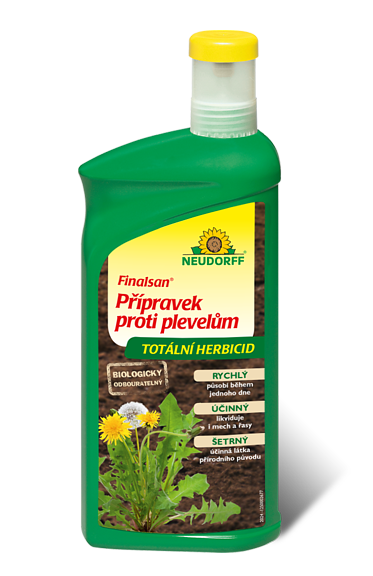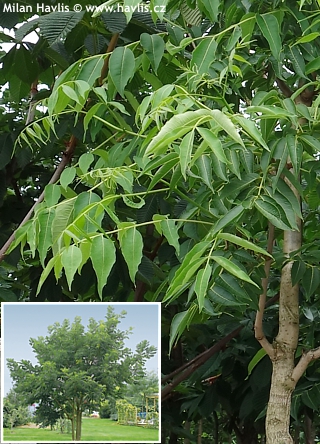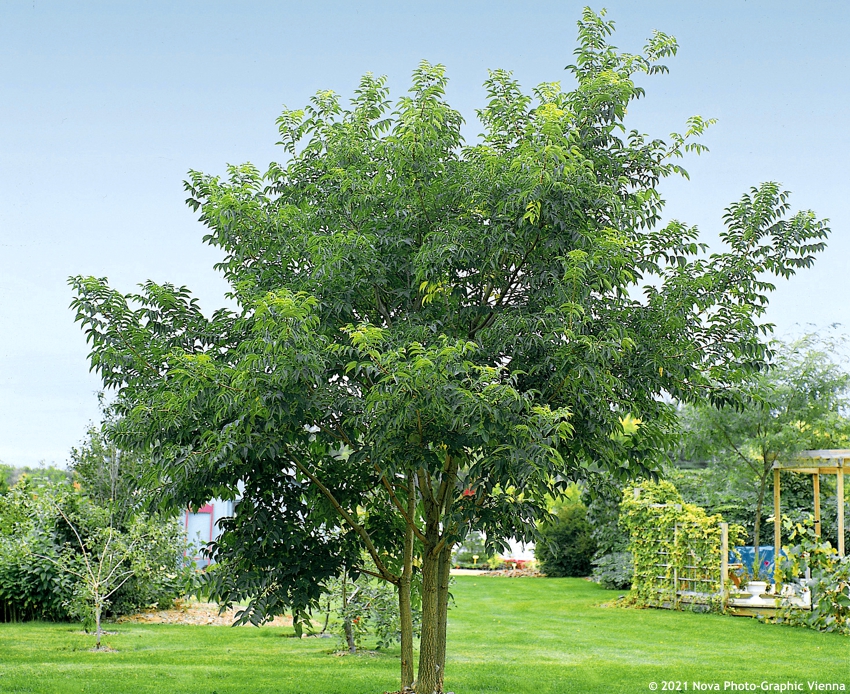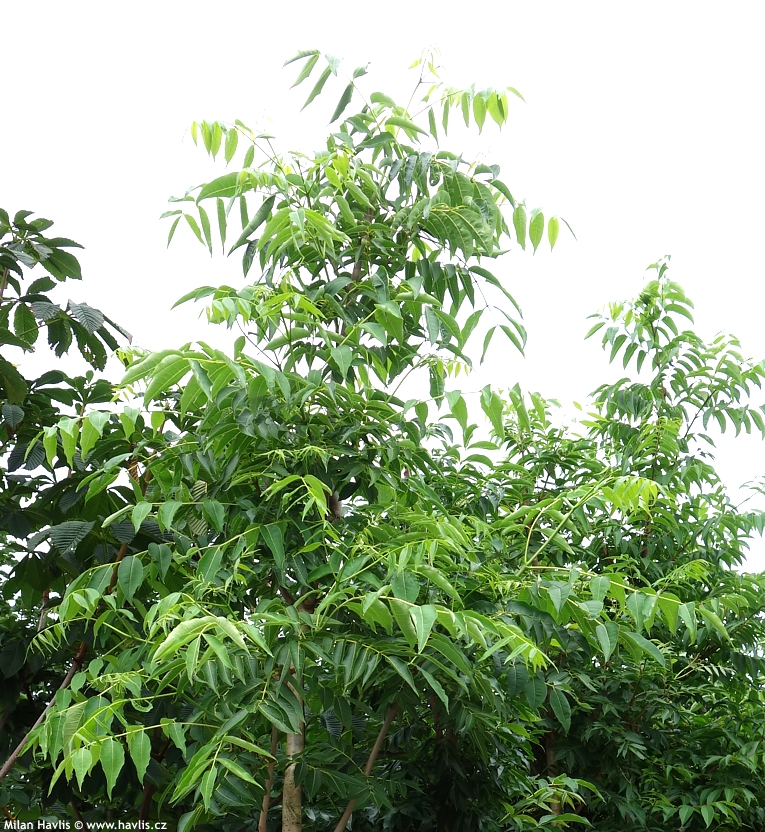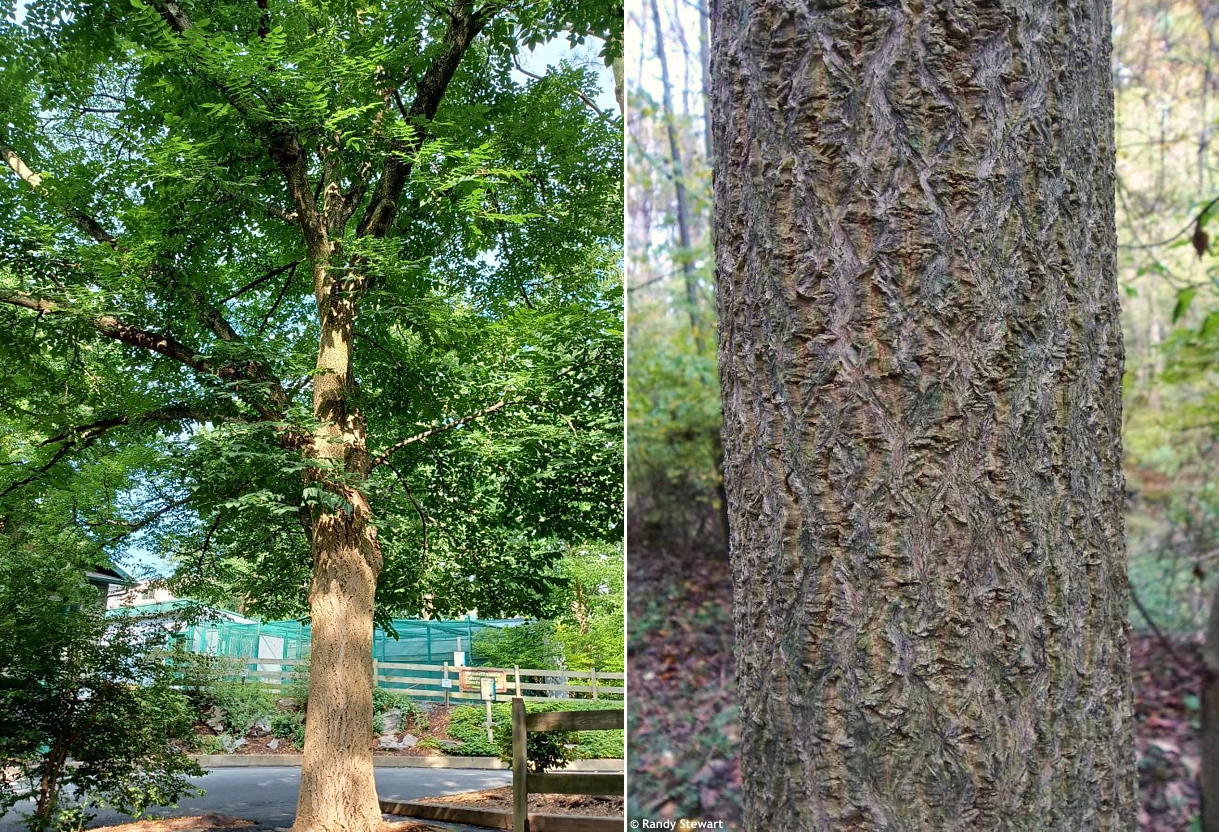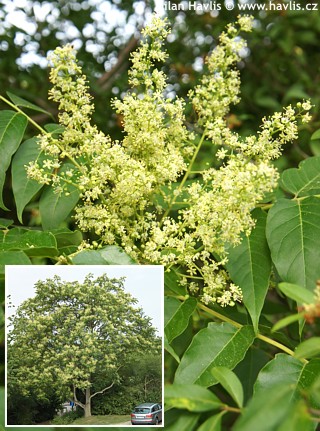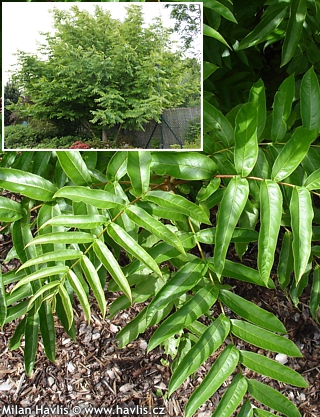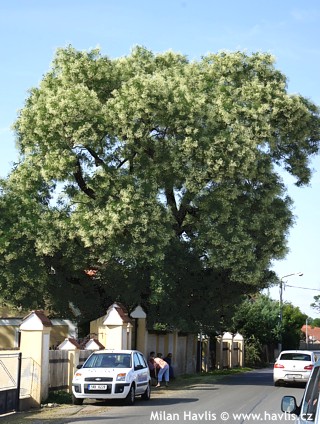Phellodendron amurense Amur cork oak
Amur Cork Tree is a beautiful specimen tree native to a large area around the Amur River in N.E. Asia - Manchuria, the Amur region in Russia, and Mongolia. Since the winter temperatures can drop to -40 °C there, no wonder that it is popular especially in countries with colder climates where it is planted for its exotic appearance and attractive bark. It used to be mined for production of cork pulp as well as medicinal purposes. It is well-known in Chinese medicine.
It is a medium-sized, fast-growing, massive-trunked tree that naturally forms picturesque, spreading canopies of similar shape as oak trees thanks to which it is sometimes incorrectly called Amur cork oak, although it is from a completely different family (routaceae) than oak (fagaceae). Each tree is unique in shape and grows between 8 and 15 meter tall and wide.
It bears rather exotic-looking, 30 to 50 cm long, deciduous, pinnate leaves composed of medium green, 8-15 cm long, highly glossy, ovate, conspicuously pointed leaves which turn yellow for a short period of time in autumn. They resemble foliage of ailanthus or juglans nigra. In June, it blooms with panicles composed of small, yellow-green flowers that provide good bee food. Pollinated flowers may be followed by small black fruits in autumn that persist on the tree long into the winter before the birds eat them. However, Amur cork tree is dioecious and needs pollen from another tree to produce fruit.
The deeply furrowed bark was not only the source of cork, it is also an ornamental feature for which this majestic tree is cultivated. Its breadth requires spacious locations but there is a way how to enjoy it in a smaller garden, too. It is called pollarding. It is a form of pruning when at the end of winter you cut back the branches right to the top of the stem, let them re-grow in spring, making long branches with extremely large leaves. Such action must be repeated annually. The advantage of pollarding is the possibility to grow large trees also in small spaces, the disadvantage is a not very attractive silhouette in winter after the leaves have fallen, the outline is sometimes called a hairy lollipop.
Amur cork tree is undemanding as to the soil type provided it is well-drained, though, it performs best in deep, fertile, moist soils in full sun. It does not tolerate salt spray and paved areas or other root restrictions. Newly planted trees with a trunk height of 1.5 m and taller need to be staked to a strong support for at least 3 years before the roots establish. It can cope with severe frosts down to approx. -40 °C (USDA zone 3).
Last update 23-11-2021

1 224 Kè

6 630 Kè
Goods are shipped all over Europe. For Russia and U.K. and for further details please read about SHIPPING OPTIONS HERE.
Are you interested in a serious discount for orders NOV-FEB? Check your options here.
THE PRICES INCLUDE VAT of 15%. For quick conversion you can use 1 CZK = approx. 0.04 EUR
- STANDARD QUALITY - Plants of this group are 1st class quality with number of branches and overall density adequate to their size and age, considering they were container grown.
- DE LUXE QUALITY - This label guarantees a luxurious quality of manually selected plants that, compared to their height and age, are exceptionally dense and beautiful.
- EXTRA - These plants are usually mature and bigger specimens with exceptional overall appearance.
- STANDARD (as described in the plant form) means a tree with a trunk of 190-210 cm and a crown at the top, unless specified differently. The commercial size for trees is their girth measured in the height of 1m from ground.
- HOBBY - These plants are of the same quality as our standard-quality plants but younger and therefore cheaper.
- SHRUB - a woody plant with branches growing bushy from the ground level.
- HALF-STANDARD or MINI-STANDARD - a small tree with shorter trunk, its size is usually specified.
- FEATHERED - These are trees with branches growing already from the base of the trunk and up along the stem.
- GRASSES and PERENNIALS - Sizes given usually read the diameter of the pot or the clump, as specified.






























